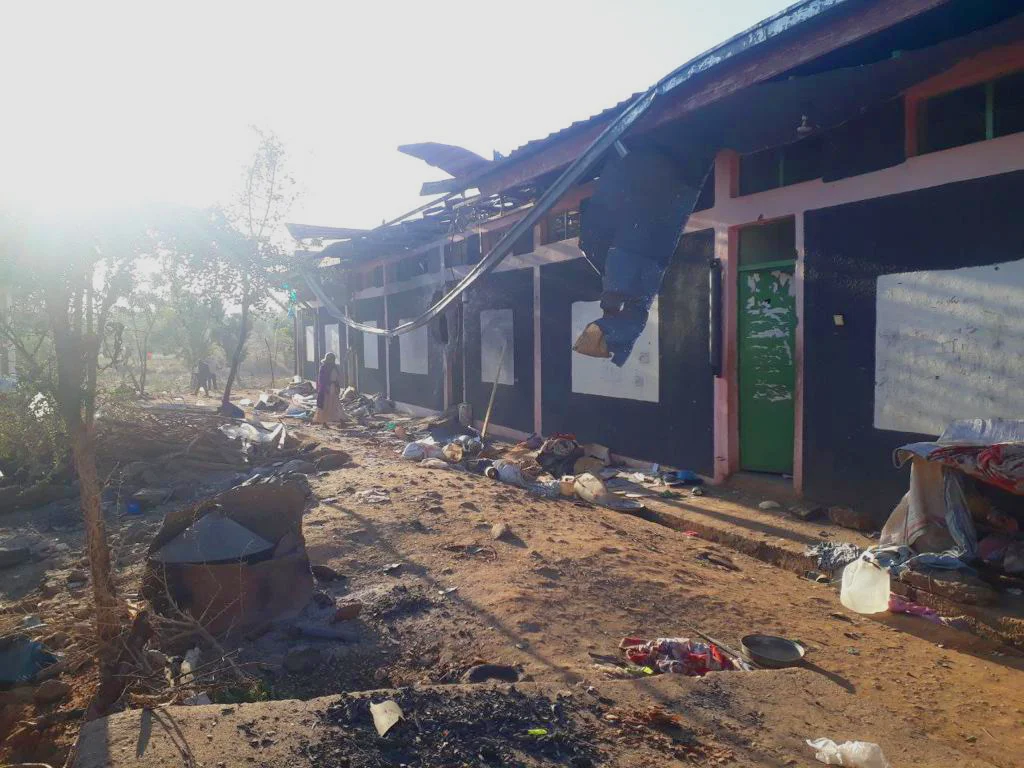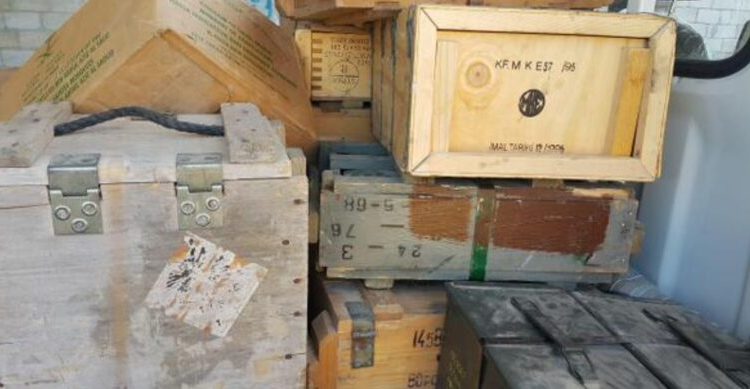Levent Kenez/Stockholm
The opposition has accused the government of Turkish President Recep Tayyip Erdogan of neglecting its international responsibility to ensure that exported weapons do not end up in the hands of unintended end-users.
In a written parliamentary question directed to Defense Minister Yaşar Güler, Oğuz Kaan Salıcı, a deputy from the main opposition Republican People’s Party (CHP), said the growth of the Turkish defense industry has also increased Turkey’s international responsibilities
Salıcı has submitted a series of written inquiries to Güler, questioning the ministry’s practices and responsibilities regarding arms exports. He questioned the number of export license applications approved and rejected over the past decade and sought assurances that Turkish military ammunition would not be used against Turkey or its interests.
Additionally, he inquired about the measures in place to prevent exported weapons from being employed in actions that could lead to international sanctions against Turkey.
Salıcı also raised concerns about the monitoring of compliance with end-user certificates, which are supposed to ensure that exported military products are not transferred to third parties. He asked how violations of these agreements are detected and what penalties are imposed on importing countries if they violate these terms.
Written questions by main opposition member of parliament Oğuz Kaan Salıcı:
Furthermore, Salıcı sought information on the criteria used to evaluate export license applications and whether relevant institutions such as the Ministry of Foreign Affairs, the National Intelligence Organization, the Ministry of Trade and the Ministry of Industry and Technology are consulted during the approval process.
He also questioned whether arms exports that include foreign-made components require additional permissions from the originating countries and what the specified foreign content threshold is for such requirements.
Lastly, Salıcı asked whether the current laws and presidential decrees governing arms exports are adequate or if new legislation is being considered to address these concerns.
In one of his written inquiries, Salıcı claimed that Turkey has not yet faced any international issues regarding the use of its exported weapons; however, this assertion is inaccurate.
In 2021 opposition lawmakers criticized a military agreement signed with Ethiopia, aimed at improving military relations and intelligence sharing, especially since Ethiopia and Egypt were involved in a dispute over the Nile dam. They warned that Turkish weapons or military drones might be used by Ethiopia against Egypt, potentially sparking a new crisis between Ankara and Cairo, just as Turkey was attempting to repair its relations with Egypt at the time.

In 2022 Turkish-Ethiopian military relations came to the international agenda after the Ethiopian army on January 7, 2022 hit a primary school filled with children, women and elderly men with drones bought from Turkey. At least 59 civilians were killed and dozens more were injured. Up until that time, Turkey was not known to have sold drones to Ethiopia. Weapons remnants recovered from the site were determined to be MAM-L (smart micro munition) guided bombs produced by Turkey’s Roketsan and paired exclusively with Turkish-made Bayraktar drones. The Turkish Embassy was reportedly moved to Kenya over security concerns; however, the Turkish Foreign Ministry denied it, saying only the ambassador had temporarily left Ethiopia.
Turkey’s sale of military drones to Ukraine caused tensions with Russia in October 2021. Ukrainian state television broadcast a video showing a Turkish-made military drone used against Russian-backed forces in the eastern Donbas region on October 23, 2021.
The Kremlin said the following day that its fear about Turkey’s decision to sell strike drones to Ukraine was being realized and that the Turkish drones risked destabilizing the situation in eastern Ukraine.
However, Turkey claimed it had no responsibility for how the drones it sells were used. “If a country buys them from us, they are no longer Turkish,” then-foreign minister Mevlüt Çavuşoğlu told reporters after he met with his Russian counterpart, Sergei Lavrov, at the G20 summit in Rome in November 2021.
“Perhaps Turkey has produced it, but it belongs to Ukraine,” he said. Nevertheless, he also called on Ukrainian authorities to stop referencing Turkish drones or Turkey when speaking of the drones.
Despite expressing discomfort over Turkey’s continued drone sales to Ukraine following Russia’s invasion in 2022, Moscow has not escalated this issue into a crisis point between the two countries. This restraint is largely due to Turkey’s decision not to join Western sanctions and its role in evading the embargo against Russia.
An important factor for the success of Turkey’s initiatives to increase defense exports in recent years, also called “drone diplomacy,” lies in Turkey’s concentration on commercial targets rather than how and against whom these weapons are used. African countries are increasingly attracted to Turkish weapons, particularly drones, due to the ease and efficiency of the sales procedures and approval processes. Turkey does not have a long export approval process for defense products, either, unlike the US and the European Union.












